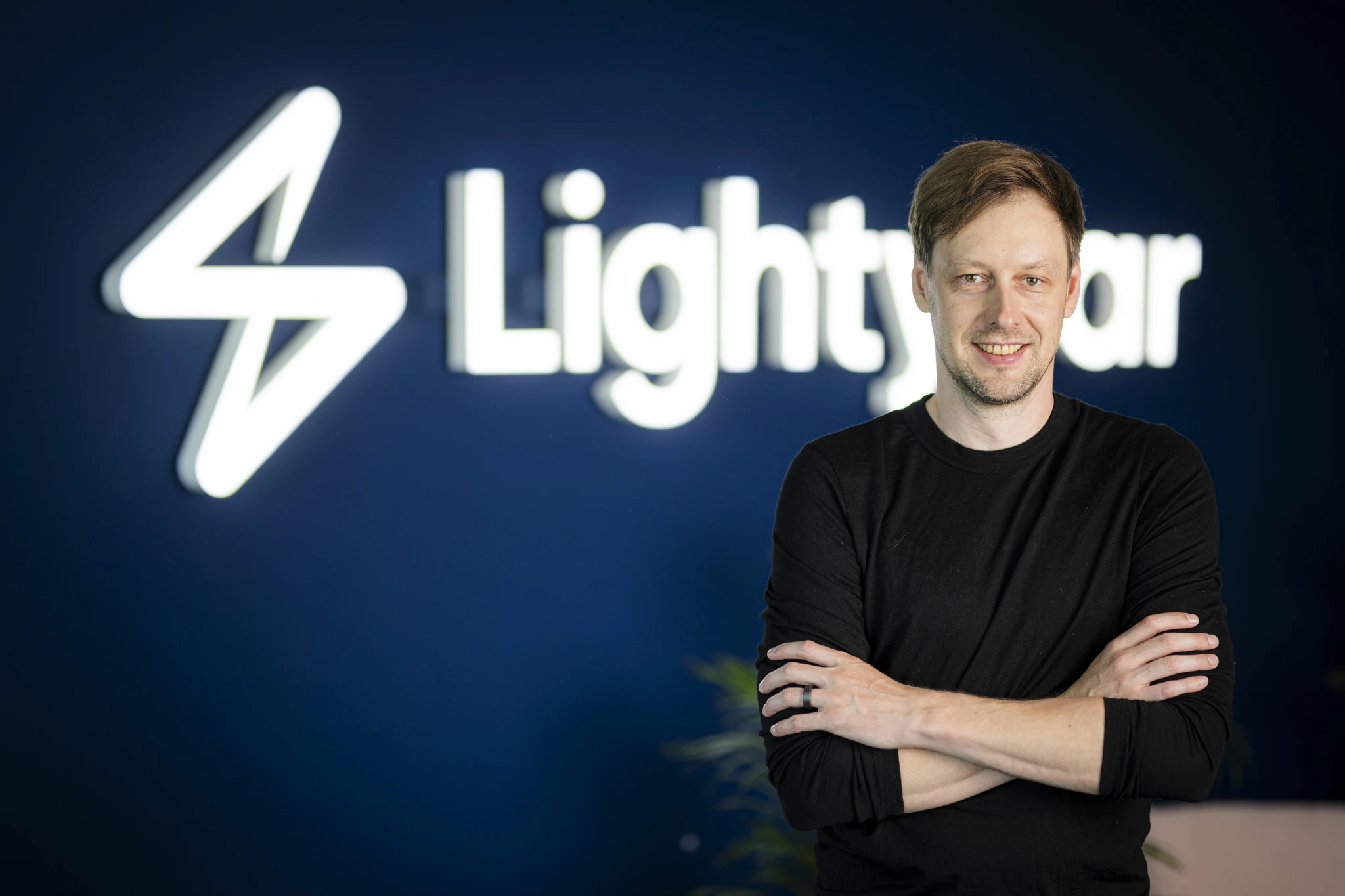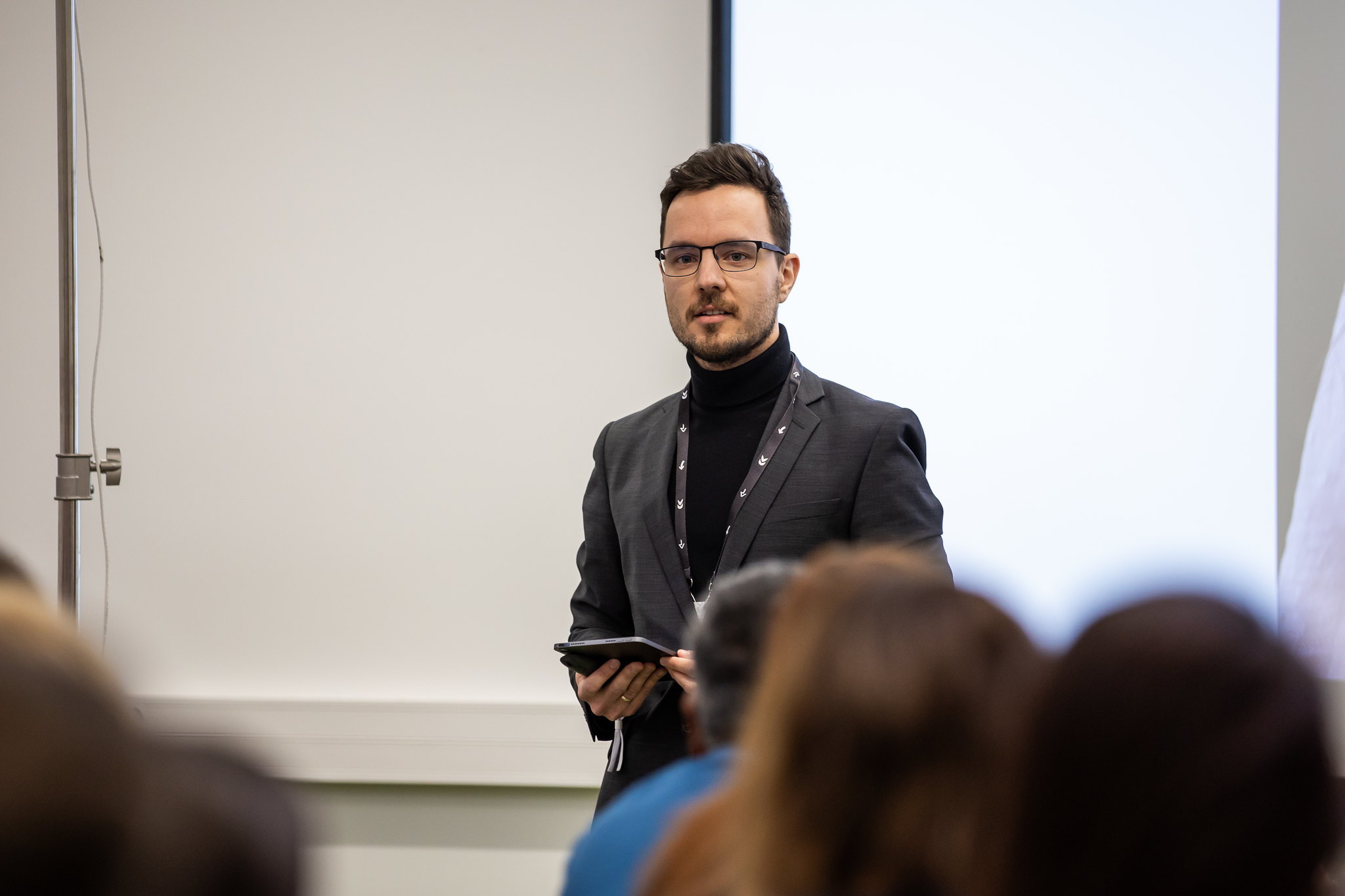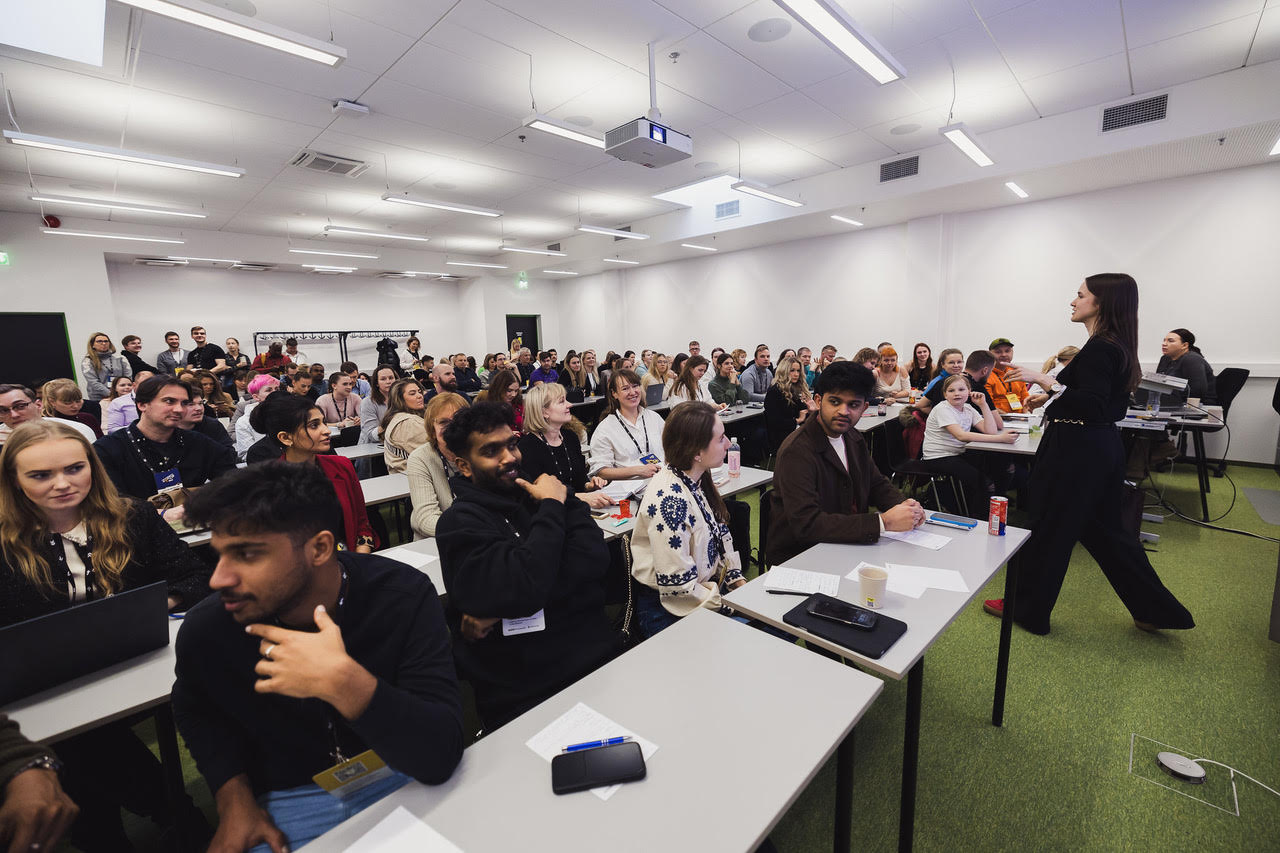
Combining Wise Lessons and Lightyear Ambitions: Martin Sokk’s Mission to Make Investing Simple for Everyone
Martin Sokk, co-founder and CEO of Lightyear, has a career trajectory that mirrors the transformation of the financial world itself. From his early days at traditional giants like Eesti Energia and Swedbank to his pivotal role at Wise, Martin has always been at the forefront of innovation. His latest venture, Lightyear, aims to democratize investing for everyday Europeans, leveraging the lessons learned from a career navigating corporate complexities and startup agility.
In this interview, Martin dives into the philosophies that drive him, from the importance of customer-centric thinking to the nuances of navigating Europe's diverse regulatory and cultural landscape. He also shares his approach to building resilient teams and making decisions that align with long-term goals. As Lightyear looks to redefine investing, Martin offers insights that resonate far beyond the fintech space.
This interview was conducted by Rene Rumberg, a member of the sTARTUp Day communications & marketing team.
What were the biggest takeaways from your time at Wise, and how did they shape your approach to launching Lightyear?
I joined Wise from a traditional big company, Eesti Energia, and before that, I worked for one of the biggest banks in the region, Swedbank. Those are successful big companies on a local scale.
Startups are quite different beasts.
The backbone of Wise is its obsessive focus on customer-centric thinking—simplifying and transparently solving user problems. This means leveraging technology to create an environment that minimizes errors and automates processes, ensuring a seamless and efficient customer experience. People cannot process multiple things at the same time, and this makes everything slow.
So, how do you use technology to lower costs, decrease mistakes, solve problems, and, at the same time, improve the product?
The only way to understand that is to work closely with the customers. Today, I’m reading every customer feedback our company gets in every market. I think that’s something that most companies are not doing.
With Europe's diverse regulatory landscape, how has Lightyear approached providing a seamless experience across multiple countries?
There are multiple sides to this.
One is European overarching regulatory frameworks. The financial sector in Europe is among the most heavily regulated in the world. For instance, one of the foundational rule books we follow contains 1.1 million paragraphs—and that’s just one example among many. Navigating this complexity requires meticulous compliance and a well-structured approach.
The second part is the local stuff. We can operate across the European market. Still, at the same time, in Portugal and Spain, you have different ways to talk to customers. For example, in the French market, you can only do marketing if your product is in the French language, and there are different ways to buy ads, etc. So there are many local customer behavior things, and there's another element like what's less related to the regulatory, but more to the cultural side of things and how people think about money in different countries across Europe.
People in Germany think significantly differently than people in Hungary or Estonia, and the biggest problem that people often make is that they underestimate how important the thinking process is.
It often happens that Germany builds the product, thinks it's amazing, goes to the UK, and fails because UK people don't know it. UK companies have yet to reach the European mainland successfully, and US companies are also struggling, so there is a cultural problem.
The second thing is this regulatory aspect. Being originally from Estonia, Lightyear was designed from the outset to operate across borders and comply with multiple regulatory jurisdictions. We decided to tackle this challenge head-on by building a scalable system that works seamlessly across all markets—whether it’s one or twenty-one. We have a solid compliance team, which is also agile, so we're thinking about a local-global view, which means that something that works for everyone in Europe, which then this is the baseline, and then we're going to go market by market, to make sure every single market works well as well.
The success of a startup usually comes down to a team; that's why most investors also invest in teams rather than in the idea itself. What advice or suggestions would you give someone looking to build a winning team from day one?
There are a few crucial things we’re looking for in people. First, we’re looking for people with endless curiosity. One of the biggest risks is assuming you already know how things work—whether it’s markets, industries, or people. Take Estonia, for example. Do you really understand how people in different regions think and behave? The honest answer is, ‘No, you don’t’. So you need to be this endlessly curious person who goes in and constantly learns and understands that whatever we've learned today, maybe in two years, it's not true anymore.
We're looking for people who have done something in their lives. You don't need to be like a rockstar who has built massive startups. Still, many people who are curious and driven and want to do something cool are those who in universities, did some cool stuff, participated in sports events, organized their own events or robotics clubs or whatnot. So, if we look into the best people, we often find these characteristics where they do extracurricular things and want to figure things out.
In my opinion, these people are the best people for startups because startups are functioning in highly agile environments where things are constantly changing, and that’s why those types of people are essential.
It's always tricky because when you start at the beginning, you doubt everything because nothing has been proven yet. If you’re five years in, you already have quite a lot of understanding about the market, but now there's a question like “If I'm going to make a change, does this ruin something that I have done in the past?”.
What often helps is the understanding that you have a mission, and this mission, either a product or company or whatnot, is usually aligned towards some customer benefit or doing something for customers.
I know how to build stuff that will benefit customers because I aim not to build some BS that doesn't make sense.
In challenging moments, I always ask: does this align with our mission and benefit our customers? Sometimes, making the right decision means sacrificing short-term gains to achieve long-term success. Sometimes, you take risks to build something in the next two years that would give the customer a significant leap in their experience.
We challenge complex problems that give the biggest leap for the customers because if you're solving it for the customer, there's a much higher likelihood that you'll win.
Things like raising prices or trying out gimmicky things don’t often go the right way, and in the end, you might just dig a deeper hole for yourself.
So find a way that makes sense for your customers and build on top of that, whatever you’re doing.
So, Lightyear is an investment platform. We aim to empower everybody to be a good investor. We want to make you a successful investor. The reason why it’s important is because financial health in everybody’s lives, whether you’re just starting your career or in the later stages, having financial stability and control of what you’re doing and when you’re doing is one of the most powerful things people can have. It’s rather sad if people reach the end of their careers and then realize they don't have any financial confidence and need to work till they die.
We’re trying to give people this power, but that often takes time and lots of understanding. Taking care of yourself financially is similar to taking care of your car - going to the service - or taking care of yourself - visiting a doctor to ensure everything’s good. You should take care of your financial health from the early days by making smart decisions so it would work out for you well. This is what Lightyear is doing.
Today, we only see that 15 to 20 percent of Europeans are investing. This is rather low. We’re looking to increase that number because that would mean impacting hundreds of millions of people’s lives. This is something that we are aiming to do.
Martin Sokk will speak at the Baltics' biggest business festival, sTARTUp Day 2025, which will be held from 29 to 31 January in Tartu, Estonia.
This interview was conducted by Rene Rumberg, a member of the sTARTUp Day communications & marketing team.
What were the biggest takeaways from your time at Wise, and how did they shape your approach to launching Lightyear?
I joined Wise from a traditional big company, Eesti Energia, and before that, I worked for one of the biggest banks in the region, Swedbank. Those are successful big companies on a local scale.
Startups are quite different beasts.
The backbone of Wise is its obsessive focus on customer-centric thinking—simplifying and transparently solving user problems. This means leveraging technology to create an environment that minimizes errors and automates processes, ensuring a seamless and efficient customer experience. People cannot process multiple things at the same time, and this makes everything slow.
So, how do you use technology to lower costs, decrease mistakes, solve problems, and, at the same time, improve the product?
The only way to understand that is to work closely with the customers. Today, I’m reading every customer feedback our company gets in every market. I think that’s something that most companies are not doing.
With Europe's diverse regulatory landscape, how has Lightyear approached providing a seamless experience across multiple countries?
There are multiple sides to this.
One is European overarching regulatory frameworks. The financial sector in Europe is among the most heavily regulated in the world. For instance, one of the foundational rule books we follow contains 1.1 million paragraphs—and that’s just one example among many. Navigating this complexity requires meticulous compliance and a well-structured approach.
The second part is the local stuff. We can operate across the European market. Still, at the same time, in Portugal and Spain, you have different ways to talk to customers. For example, in the French market, you can only do marketing if your product is in the French language, and there are different ways to buy ads, etc. So there are many local customer behavior things, and there's another element like what's less related to the regulatory, but more to the cultural side of things and how people think about money in different countries across Europe.
People in Germany think significantly differently than people in Hungary or Estonia, and the biggest problem that people often make is that they underestimate how important the thinking process is.
It often happens that Germany builds the product, thinks it's amazing, goes to the UK, and fails because UK people don't know it. UK companies have yet to reach the European mainland successfully, and US companies are also struggling, so there is a cultural problem.
The second thing is this regulatory aspect. Being originally from Estonia, Lightyear was designed from the outset to operate across borders and comply with multiple regulatory jurisdictions. We decided to tackle this challenge head-on by building a scalable system that works seamlessly across all markets—whether it’s one or twenty-one. We have a solid compliance team, which is also agile, so we're thinking about a local-global view, which means that something that works for everyone in Europe, which then this is the baseline, and then we're going to go market by market, to make sure every single market works well as well.
The success of a startup usually comes down to a team; that's why most investors also invest in teams rather than in the idea itself. What advice or suggestions would you give someone looking to build a winning team from day one?
There are a few crucial things we’re looking for in people. First, we’re looking for people with endless curiosity. One of the biggest risks is assuming you already know how things work—whether it’s markets, industries, or people. Take Estonia, for example. Do you really understand how people in different regions think and behave? The honest answer is, ‘No, you don’t’. So you need to be this endlessly curious person who goes in and constantly learns and understands that whatever we've learned today, maybe in two years, it's not true anymore.
We're looking for people who have done something in their lives. You don't need to be like a rockstar who has built massive startups. Still, many people who are curious and driven and want to do something cool are those who in universities, did some cool stuff, participated in sports events, organized their own events or robotics clubs or whatnot. So, if we look into the best people, we often find these characteristics where they do extracurricular things and want to figure things out.
In my opinion, these people are the best people for startups because startups are functioning in highly agile environments where things are constantly changing, and that’s why those types of people are essential.
It's always tricky because when you start at the beginning, you doubt everything because nothing has been proven yet. If you’re five years in, you already have quite a lot of understanding about the market, but now there's a question like “If I'm going to make a change, does this ruin something that I have done in the past?”.
What often helps is the understanding that you have a mission, and this mission, either a product or company or whatnot, is usually aligned towards some customer benefit or doing something for customers.
I know how to build stuff that will benefit customers because I aim not to build some BS that doesn't make sense.
In challenging moments, I always ask: does this align with our mission and benefit our customers? Sometimes, making the right decision means sacrificing short-term gains to achieve long-term success. Sometimes, you take risks to build something in the next two years that would give the customer a significant leap in their experience.
We challenge complex problems that give the biggest leap for the customers because if you're solving it for the customer, there's a much higher likelihood that you'll win.
Things like raising prices or trying out gimmicky things don’t often go the right way, and in the end, you might just dig a deeper hole for yourself.
So find a way that makes sense for your customers and build on top of that, whatever you’re doing.
Lightyear founders Martin Sokk and Mihkel Aamer
For those new to fintech, please explain briefly what Lightyear does and how it benefits the everyday investor.So, Lightyear is an investment platform. We aim to empower everybody to be a good investor. We want to make you a successful investor. The reason why it’s important is because financial health in everybody’s lives, whether you’re just starting your career or in the later stages, having financial stability and control of what you’re doing and when you’re doing is one of the most powerful things people can have. It’s rather sad if people reach the end of their careers and then realize they don't have any financial confidence and need to work till they die.
We’re trying to give people this power, but that often takes time and lots of understanding. Taking care of yourself financially is similar to taking care of your car - going to the service - or taking care of yourself - visiting a doctor to ensure everything’s good. You should take care of your financial health from the early days by making smart decisions so it would work out for you well. This is what Lightyear is doing.
Today, we only see that 15 to 20 percent of Europeans are investing. This is rather low. We’re looking to increase that number because that would mean impacting hundreds of millions of people’s lives. This is something that we are aiming to do.
Martin Sokk will speak at the Baltics' biggest business festival, sTARTUp Day 2025, which will be held from 29 to 31 January in Tartu, Estonia.
Articles you might also like:

Clarity & Control: Building Your Personal Time Management System
31.03.2025
On January 30th at sTARTUp Day, Jakob Gill, a trainer at Produktiivsusklubi, delivered a seminar on personal time management and how to...

What Kind of Stories Make Money? Insights from Miltton’s Brand Experts
26.03.2025
How to find the story behind your product? That was the core question at the seminar “What Kind of Stories Make Money?”...
_block.webp)
